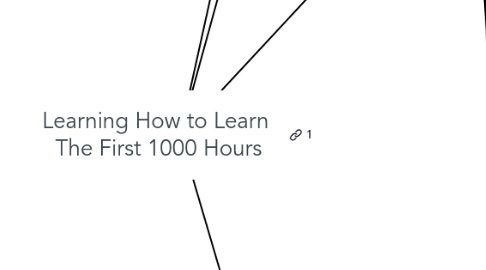
1. Expectations
1.1. Master most of what we currently know about how the brain works when it comes to learning
1.2. Master timing, habits, permanence, energy, mastery, skill recycling, and skill inflation
1.3. Master all the best-known strategies for learning (with maybe the exception of building skill trees)
1.4. Learn many skills and become very good in some of them
2. Prepare
2.1. Study the material from the last skill tree and apply what you learn.
3. Practice
3.1. Keep reinforcing what you already know from the previous phase and move on to the new material we’re proposing in the skill tree.
3.2. Apply all the concepts and techniques you’ve learned so far
3.3. Select a few skills to start learning for 15-20 hours each
3.3.1. Pick a couple you want to bring to the next level.
3.3.2. Aim for mastery in a skill you’re already pretty good at.
3.4. For each skill you learn, review the material you’ve learned in the previous phase.
3.5. Apply spaced repetition and rest accordingly.
3.6. Take better notes, and learn to mind map or create skill trees.
3.7. Beware of the pitfalls and myths you’ve learned about previously
3.8. Learn about interleaving and plan it in your schedule.
3.9. While you learn specific skills, spend time to learn the “meta skills” of learning.
3.9.1. Check out our “blitz” course on the topic.
3.10. Learn all the meta skills
3.11. Complete the Learning How to Learn course.
3.12. Take another look at our Courses, Books, and Websites sections under Resources.
3.13. Over 70% of your time should be spent practicing new skills
3.14. The rest should be about learning the rest of the theory and making sure you understand it well enough to teach it.
3.15. Teach learning how to learn to others
4. Ponder
4.1. Reflect weekly, monthly, quarterly, and possible yearly. Spend at least 30 minutes on your weekly reflection and 1 hour on your monthly reflection.
4.1.1. What have I learned? What did I truly understood?
4.1.2. What have I not understood? Why? What can I do to understand better?
4.1.3. How will I apply what I learned?
4.1.4. What do I want to do going forward?
4.1.5. Who can I teach what I learned to?
4.2. And for longer frequencies like quarterly, yearly, or at the end, ask yourself:
4.2.1. Do I feel like I’m a good learner? Why? Why not?
4.2.2. What else should I learn? What have I not fully understood yet?
4.2.3. How can I continue to apply what I’ve learned? How can I take it to the next level?
4.2.4. How has learning how to learn changed my life? Is that positive or negative?
4.2.5. What did you find the easiest? What did you find the hardest?
4.2.6. Who else do you know would benefit from learning how to learn?
4.2.7. What other skills do I want to learn in the future?
4.2.8. Do I still fear failure? If so, why do you think that is?
4.2.9. Do I feel more confident in my ability to learn completely new things?
